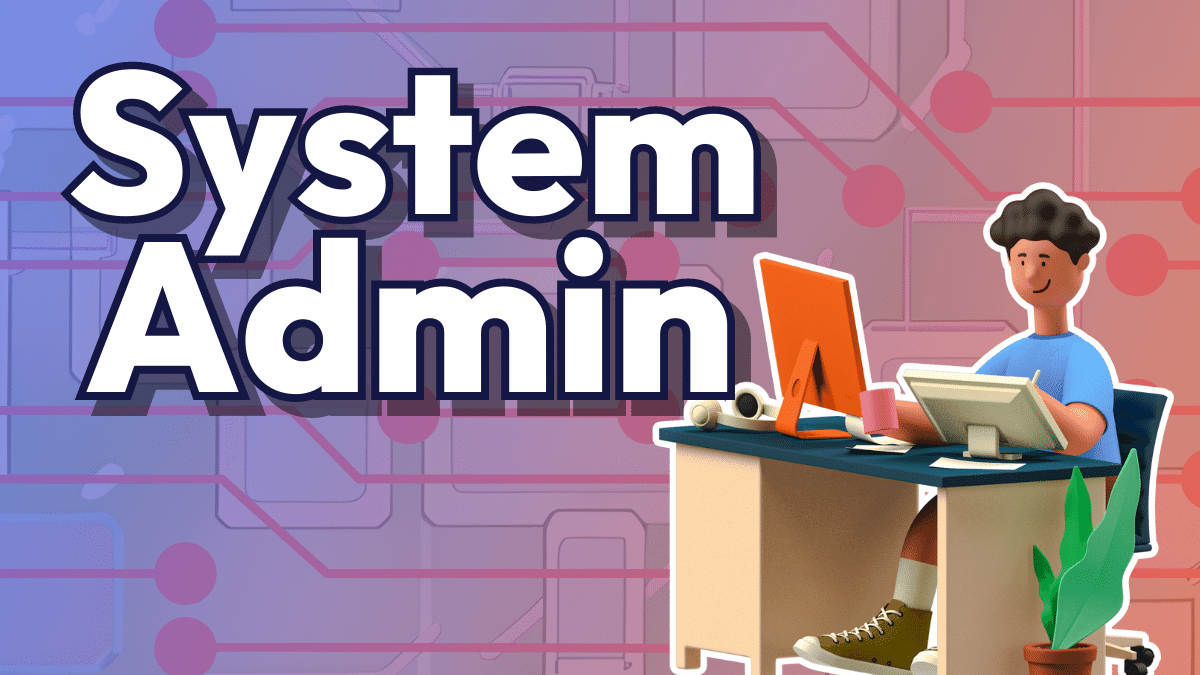Systems Administrator - Position Explained
Are you considering a career as a Systems Administrator?
Already working in IT and want to expand your skillset?
In this article, I will cover everything you need to know about being a Systems Administrator, what it is, what they do, and the skills you need to land a Systems Administrator job.
At Wahl+Case, we have helped hundreds of people land jobs at some of the biggest names in Tech. So, if you're ready to learn all about being a Systems Administrator, keep reading!
What is a Systems Administrator?
As a Systems Administrator, your main responsibility is to ensure that an organization's computer systems are running smoothly and efficiently.
Your day-to-day tasks will involve:
Installing and configuring software and hardware
Managing network servers and the technology tools that power your company
Setting up accounts and workstations
Monitoring performance and maintaining systems according to requirements
Ensuring security through access controls, backups, and firewalls
Requirements for a Systems Administrator
To excel as a Systems Administrator, you need a mix of technical and soft skills.
Technical Skills:
Soft Skills:
Communication: As a Systems Administrator, you'll often collaborate with different teams, so you need strong communication skills to effectively convey your ideas and solutions.
Problem-solving: Being able to approach complex problems and find the most efficient solution is an essential skill.
Critical thinking: You must critically assess the system's performance, question assumptions, and draw valid conclusions based on the available information.
Attention to detail: Ensuring accuracy in your system configurations and implementations is vital.
Career Progression
As a Systems Administrator, you can progress your career in multiple directions. Here are some potential career paths:
Senior Systems Administrator: With more experience, you can move up to a senior role, where you will tackle more complex projects and mentor junior administrators.
IT Manager: Oversee the IT department, including both systems and network administration.
Network Administrator: Specialize in managing and maintaining an organization's network infrastructure.
Security Specialist: Focus on ensuring the security and integrity of the organization's IT systems.
Becoming a Systems Administrator
Follow these steps to set yourself on the path to success:
Education: Typically, a bachelor's degree in a related field, such as computer science or information technology, is beneficial.
Gain experience: Hands-on experience is invaluable in this field.
Develop your technical skills: Familiarize yourself with the latest technologies and tools.
Improve your soft skills: Communication and problem-solving are crucial.
Earn certifications: Certifications like CompTIA A+ or Microsoft Certified: Windows Server can be beneficial.
Network and stay up to date: Join forums, attend workshops, and keep learning.
Alternative Titles
Systems Administrators can have different titles depending on the company or industry. Here are a few of the alternative titles you will encounter:
IT Administrator
IT Systems Manager
Network and Computer Systems Administrator
While these titles may vary, the core responsibilities often remain similar across these roles.
FAQ
Q: What is the difference between a Systems Administrator and a Network Administrator?
A: While both roles work with IT infrastructure, a Systems Administrator focuses on the overall computer systems, while a Network Administrator focuses on the network infrastructure.
Q: What industries do Systems Administrators work in?
A: Systems Administrators can work in various industries, including tech, finance, healthcare, government, and more. Any industry that relies on computer systems can benefit from the skills of a Systems Administrator.
Q: Do I need a certification to become a Systems Administrator?
A: While a certification is not always required, having one can certainly help you stand out in the job market and demonstrate your expertise.
Does this sound exciting to you? Message us here to learn what Systems Administrator positions are open right now!


























